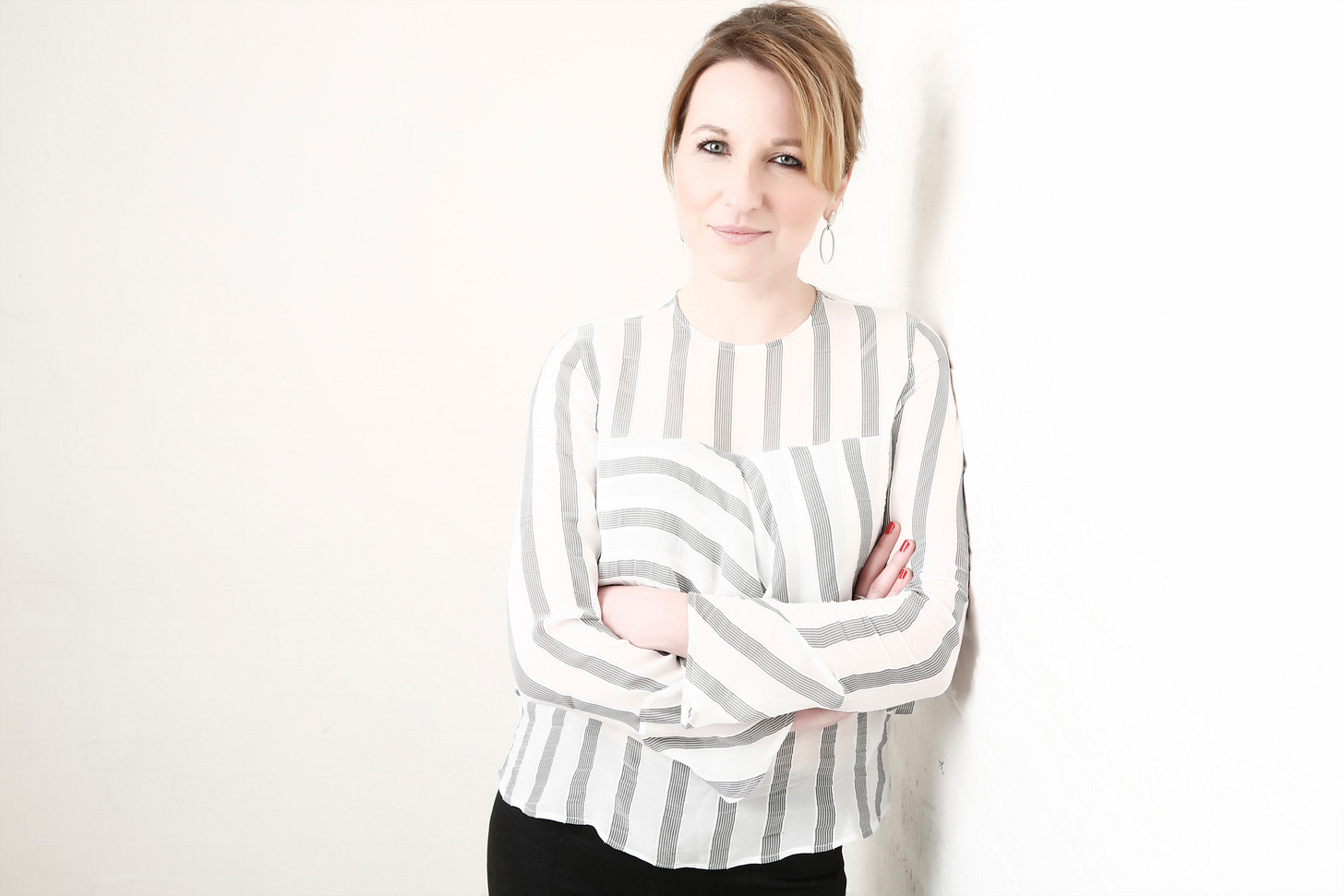Welcome to our #87 weekly newsletter.
“For women taking control of their financial future”
-Jana Hlistova
From The Purse
In this week’s newsletter, I have written an opinion piece on why women should invest in the crypto market, starting with bitcoin.
Sure, cryptocurrencies are a new asset class. They are volatile. And yes, we are still early. But there has never been a more urgent time to invest. And invest in crypto.
Especially if you consider what has happened to the global economy since the pandemic, the existing legacy financial system and what this means for your (fiat) money and your future wealth.
You can review the news in brief so you stay on top of global financial, economic and investing trends.
I hope you enjoy this week’s newsletter.
Until next week,
Jana
Women: why invest in crypto?
Opinion piece: there has never been a more urgent time to invest
Women invest in crypto.
And even though this trend is on the up and accelerating, based on the limited data we have, it is estimated that only 6%-7% of women invest in the crypto market overall. But the figures are higher for bitcoin (15%) and ether (12%).
Sure, cryptocurrencies are a new asset class. They are volatile. And yes, we are still early. But there has never been a more urgent time to invest. And invest in crypto.
Especially if you consider what has happened to the global economy since the pandemic, the existing legacy financial system and what this means for your (fiat) money and your future wealth.
Let’s put this in context: the global economy
The pandemic has been a disaster for the global economy.
The global markets crashed which is when the central banks and the government stepped in. In order to limit the damage to the economies around the world they:
reduced interest rates (to zero or close to zero)
introduced stimulus
and started printing money.
Printing money essentially pumps liquidity into the markets (this avoids a financial crisis which buffers the economy).
Put another way, central banks buy government and corporate bonds from other financial companies and pension funds.
It’s no surprise that the level of debt has gone up dramatically since the pandemic: debt is at 400% of global GDP (UK’s debt-to-GDP ratio is 106%).
What’s the impact on global currency?
Debasement. Why?
As more money is printed, the value of fiat money goes down. The annual increase in M2 or money supply is estimated at 13%-15% per year.
What does this mean for your money?
The value of the money you earn is falling every year. Simply put, you need to earn more money every year just to keep up.
Are wages rising? No.
Plus you now have less money to buy assets which continue to go up in price. We are seeing this play out in the stock market, like the S&P 500 and the housing market, for example.
And this is without taking inflation into account, which is on the increase too. Think about the rise in energy prices. Therefore the cost of living is going up.
Although the narrative is that we will continue to see ongoing growth in the economy, the aging population, indebtedness, globalisation and technology is more likely to mute economic growth.
Why invest in the crypto market: focus on bitcoin
The only way to protect your hard-earned money and future wealth, is if you invest in assets.
Assets is essentially deferred expenditure which goes up in value over a given time frame. The aim is to generate returns which outpace inflation and the expanding money supply, every year.
Bitcoin, the the world’s largest cryptocurrency…
… is regarded as an inflation hedge and a store of value. Its market capitalisation is over $1+ trillion and is currently trading at approximately $55,000+.
As reported by Cointelegraph, bitcoin has been confirmed as the best performing macro asset worldwide for 2021.
Bitcoin has appreciated 400%+ in the last 12 months.
Compare this to European stocks which have only gone up by 10.3% this year, whilst commodities are up 36.7% and US micro-cap are up 32.4%.
This is despite bitcoin’s 60% retracement from its highs in May, now all cancelled out.
Moreover, bitcoin’s average annualised return is 200%+ …
…which is more than 10 times higher than the second-ranked asset class.
Bitcoin is a decentralised and permissionless (blockchain) technology and global monetary network which can not be controlled by any one party, government or central bank.
Unlike fiat money, bitcoin has a limited supply of 21m coins. It is impossible for more bitcoin to be ‘printed’ once all the supply is available.
Therefore unlike fiat money, bitcoin is deflationary, not inflationary. As an investor, the money you allocate to bitcoin, over a longer term horizon, should go up in value.
The price predictions for bitcoin vary from $500,000 to $1m++ (some investors are even more bullish on the price).
As we enter the last quarter of the year, macro investors such as Raoul Pal predict bitcoin to peak at $400,000 in this bull cycle (expected to end March 2022).
Bitcoin is the largest crypto market cap asset…
…and its market structure is very bullish. On-chain metrics indicate that investors are hodling bitcoin right now in Q4 ie they are not selling.
Institutions continue to buy. In fact, the Bank of America (BoA) recently said that Bitcoin is simply ‘too large to ignore’.
And let’s not forget that El Salvador recently adopted bitcoin as its legal tender, and Twitter enabled payments on its network (via bitcoin).
Despite its volatility, bitcoin is increasingly regarded as ‘sound money’ and a store of value by retail investors and institutions alike.
Bitcoin is often the first crypto asset investors buy…
..as it is regarded as the foundation asset. It is where investors start before they branch out into other crypto assets including ether (ETH), DeFi tokens (decentralised finance), NFTs and smart contract platforms like Solana and Polkadot, for example.
Being aware of the risks is crucial.
As is how much money you will allocate over what period of time and when, if ever you decide to sell.
Short-term volatility in the market matters less if you are clear about your time horizon. And investing for the long-term is likely to generate higher returns, as the data already indicates.
The key skill for investing in the crypto market might be to HODL (ie do not sell) when the crypto market nosedrives by, 60%-85%. This is not uncommon, especially if in a crypto bear market.
One way to derisk your investment…
… is if you apply the ‘dollar-cost averaging’ approach which simply means that you invest a set amount every month, regardless of the price.
When the price of the asset is low, you can afford to buy more than when the price is high. Over time, this will give you an average price you paid for the asset.
The other way to derisk your investment is to only allocate a small amount of your overall net worth, for example, this might be 1%-2% of your overall net worth.
It’s always a good idea to seek financial advice and ensure you don’t put all your ‘eggs into one basket’. But if you seek advice from financial experts, make sure they understand the crypto market too.
Diversification is important, however this is also a very personal decision.
Start small
Do not assume that you must be able to afford one bitcoin in order to start investing. You can decide to invest as little as £20 or £100 per month.
In fact, this is a great way to start. Once you invest, whatever the amount, you will pay more attention and learn as you go.
What next?
Read the Bitcoin White Paper
Read The Bitcoin Standard
Check out crypto exchanges including Coinbase, Kraken, BlockFi
Disclaimer: I invest in BTC, ETH, and DeFi protocols. Please do your own research. This article is for informational purposes only, we do not provide investment advice or recommend products.
News in Brief
Financial news
The US Senate reached a deal on a stop-gap measure to extend the debt ceiling, avoiding a US government default. The agreement increased the debt limit by $480bn. US stocks shoot up and reverse losses in response.
On Friday, Wall Street stocks and government bonds wavered after weaker than expected US jobs data. Employers hired 194,000 new workers in September, widely missing expectations for 500,000 new jobs.
European stock markets rallied on Thursday, as signs that Russia may help avert an energy crisis eased concerns about inflation.
Bank of England (BoE) chief economist warns high inflation rate may persist in 2022. Huw Pill warns inflationary pressures may not pull back until after Covid and Brexit. UK inflation is expected at 4%+ by the end of 2021.
UK house prices surge at fastest rate since 2007. House prices increased by 1.7% in September. (Most mortgages agreed in September would not have completed before the tax break expired).
Crypto: bitcoin, ethereum & DeFi
Bitcoin has surged more than 30% in the last 7 days, to the highest level since May of this year. The bitcoin price currently at $55,000+. And Bank of America (BoA) says that bitcoin is ‘too large to ignore’.
Wall Street might get four bitcoin futures ETFs by the end of October. (Canada already has a number of bitcoin and ethererum ETFs.)
George Soros’ fund owns bitcoin, the CEO Dawn Fitzpatrick confirmed.
The SEC just approved the closest thing to a US bitcoin ETF: the Volt Equity's ETF. This ETF aims to track companies that hold a majority of their net assets in bitcoin or derive a majority of their profit or revenue from bitcoin-related activities.
Crypto companies raise a record breaking $6.5bn in Q3 2021 (in 339 rounds). The latest numbers are almost double the total amount raised throughout all of 2020, when VC funds invested $3.8bn in crypto companies.
JP Morgan has said in a note that institutional investors are favouring Bitcoin over gold. The re-emergence of inflation has fuelled investors interest in bitcoin as a hedge and also as a store of value.
Andreesen Horowitz values developer of NFT game Axie Infinity at $3bn. Sky Mavis, the developer of the crypto-based online game, has raised $150m in Series B.
Bored Ape Yacht Club NFT project to launch ethereum token in in Q1 2022. The NFT collections has generated hundreds of millions of dollars’ worth of trading. Owners are billed as members of the club, and membership has privileges—one of them, apparently, is a BAYC token.
Coffee Break? Read This
We’d love to hear from you. Get in touch with Jana via the The Purse website or tweet @jointhepurse and @janicka.
The Purse Ltd. Copyright 2021 & All Rights Reserved.
The Purse provides content for informational purposes only, we do not recommend products or services or provide investment advice. Please do your own research or speak to a financial advisor.
















Share this post